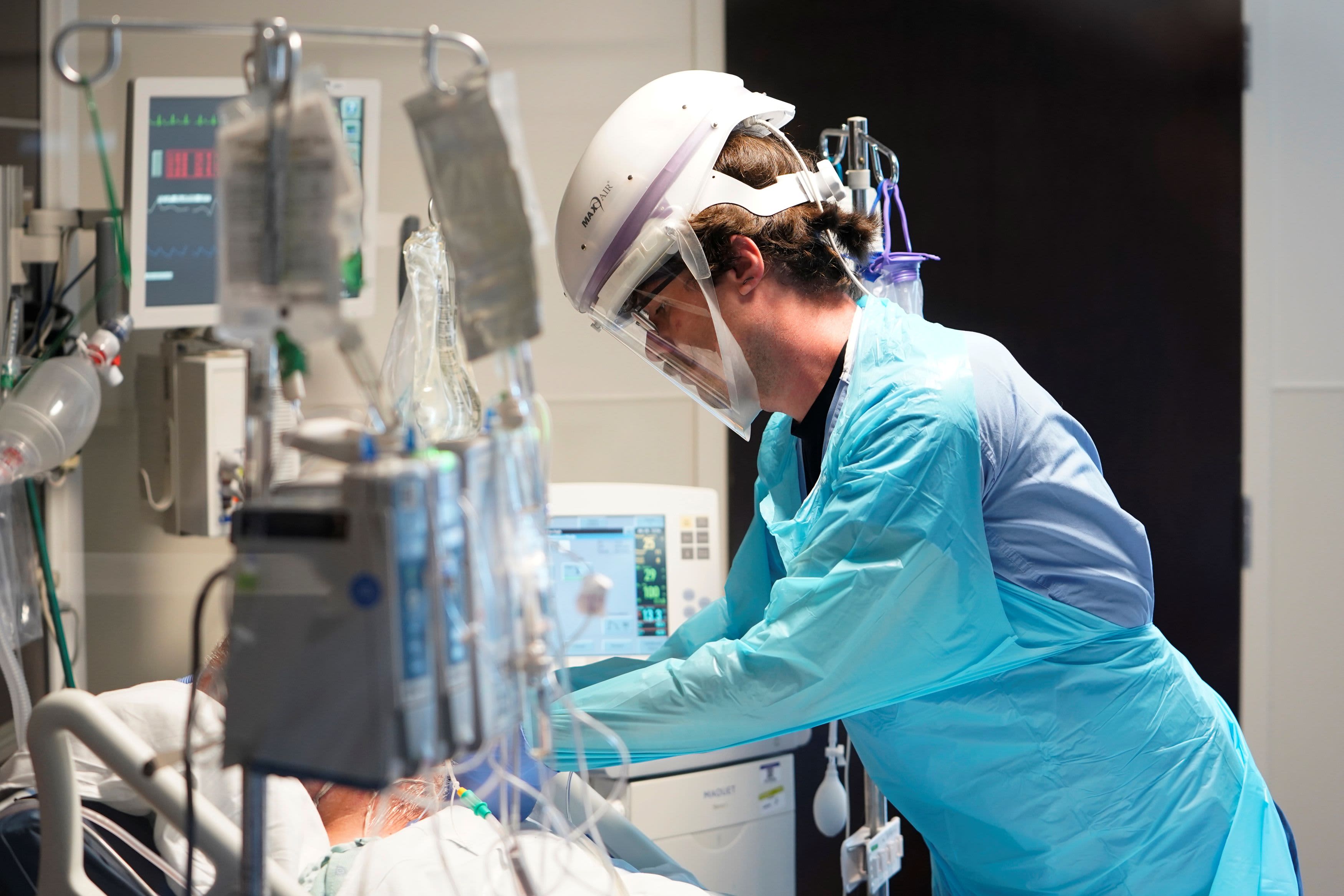Merck to seek emergency authorization for oral Covid treatment after ‘compelling results’ in trials

A nurse tends to a Covid-19 patient at SSM Health St. Anthony Hospital in Oklahoma City, August 24, 2021.
Nick Oxford | Reuters
Merck and Ridgeback Biotherapeutics plan to seek emergency authorization for their oral antiviral treatment for Covid-19, after the medicine showed “compelling results” in clinical trials.
The drug, molnupiravir, reduced the risk of hospitalization or death by around 50% for patients with mild or moderate cases of Covid-19, the companies announced on Friday. Molnupiravir is administered orally and works by inhibiting the replication of Covid-19 inside the body.
An interim analysis of a phase 3 study found that 7.3% of patients treated with molnupiravir were hospitalized within 29 days. Of the patients who received a placebo, 14.1% were hospitalized or died by day 29. No deaths were reported in patients who were given molnupiravir within the 29-day period, while 8 deaths were reported in placebo-treated patients.
All 775 trial participants had laboratory-confirmed symptomatic Covid-19 and were randomly allocated either molnupiravir or a placebo within five days of the start of their symptoms.
Every participant was unvaccinated and had at least one underlying factor that put them at greater risk of developing a more severe case of the virus. The most common risk factors included obesity, being over the age of 60, diabetes and heart disease.
The phase 3 part of the trial was conducted at more than 170 sites, in countries including the U.S., Brazil, Italy, Japan, South Africa, Taiwan and Guatemala.
Molnupiravir’s efficacy was not affected by the timing of symptom onset or patients’ underlying risk factors, the study showed. It also proved to be consistently effective in treating all variants of Covid-19, including the widely dominant and highly transmissible Delta strain.
Adverse events were comparable in both the molnupiravir and placebo groups, with around 10% reporting adverse events. Just 1.3% of the molnupiravir group discontinued therapy due to an adverse event – less than the 3.4% of the placebo group who did so.
Recruitment into the study is being stopped early due to the positive results, at the recommendation of an independent Data Monitoring Committee and in consultation with the U.S. Food and Drug Administration.
Merck is currently also trialing molnupiravir in a separate global phase 3 study to evaluate its efficacy in preventing the spread of Covid-19 within households.
‘Profound impact’
Robert M. Davis, CEO and president of Merck, said in a press release on Friday that the company would do everything it can to bring molnupiravir to patients as quickly as possible.
“With these compelling results, we are optimistic that molnupiravir can become an important medicine as part of the global efforts to fight the pandemic,” he said.
Ridgeback Biotherapeutics CEO Wendy Holman added: “With the virus continuing to circulate widely, and because therapeutic options currently available are infused or require access to a healthcare facility, antiviral treatments that can be taken at home to keep people with Covid-19 out of the hospital are critically needed.”
“We are very encouraged by the results from the interim analysis and hope molnupiravir, if authorized for use, can make a profound impact in controlling the pandemic,” she said.
Emergency Use Authorization
Merck said on Friday it plans to seek Emergency Use Authorization for the drug in the U.S. as soon as possible. The company also plans to submit marketing applications to other international drug regulators.
If authorized by regulatory bodies, molnupiravir could be the first oral antiviral medicine for Covid-19. Antiviral treatments currently in use, such as remdesivir, are administered intravenously.
Merck has already begun producing molnupiravir. The pharmaceutical giant expects to produce 10 million courses of treatment by the end of 2021, and more doses in 2022.
Earlier this year, Merck agreed to supply the U.S. with around 1.7 million courses of molnupiravir. This agreement is dependent on molnupiravir receiving Emergency Use Authorization or approval from the FDA.
Merck has also entered supply and purchase agreements for the drug with other governments – pending regulatory authorization – and is in discussions with other governments about the supply of molnupiravir.
The firm said on Friday that it plans to implement a tiered pricing approach based on World Bank country income criteria to ensure molnupiravir can be accessed globally. Merck has previously announced that it had entered into non-exclusive voluntary licensing agreements for molnupiravir with generic manufacturers, a move intended to assist low and middle-income countries in gaining access to the treatment. Those agreements are also pending approvals or emergency authorization by local regulators.
Profit share
Ridgeback received an upfront payment from Merck as part of the companies’ collaborative development of molnupiravir. The company is also eligible to receive contingent payments depending on developmental and regulatory approval milestones.
Profits arising from the collaboration will be split between Merck and Ridgeback equally.




